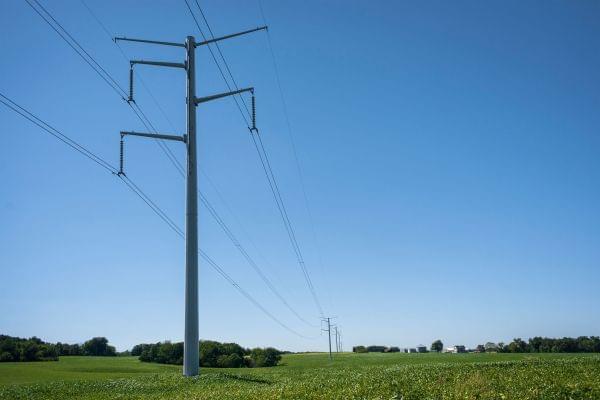First Bill To Land On Rauner’s Desk Presents Potential Political, Legal Issues

(PRNewsFoto/Ameren)
The measure at hand, House Bill 3975, took a strange and winding path to get to Governor Bruce Rauner's desk, beginning with one governor and one General Assembly, and carrying over into another administration and new legislative session. The plan allows Ameren and Commonwealth Edison to continue asking customers to pay for upgrades to the electric grid; in many cases that means a higher electric bill.
The legislation was rushed through the General Assembly late last year — after Rauner had made Gov. Pat Quinn into a lame duck. But Quinn could have vetoed it, as he'd done with a previous, similar measure. So Senate President John Cullerton used a parliamentary maneuver to put it on hold. Cullerton lifted his hold (known as a "motion to reconsider") at the last minute, after Rauner had been sworn in.
Then the legislation met another snag. Democratic House Speaker Michael Madigan sat on it for a month before allowing it to reach Rauner. Madigan's spokesman wouldn't explain why the speaker held it, other than noting a deadline that basically forced Madigan to send the legislation along when he did.
Whether the stalling tactics will help the measure become law remains to be seen; Gov. Rauner's office would only say that it's under review.
Illinois' original so-called smart-grid law passed in 2011, despite then-Gov. Quinn's opposition; the General Assembly simply overrode his veto. Because HB 3975 passed the General Assembly in December, with little time left before a new class of lawmakers was set to be sworn into office, there may not have been time to override a potential veto from Quinn; his rejection would have permanently killed the attempt.
Likewise, a veto from Gov. Rauner would mean the legislation's demise.
This is the first bill to reach Rauner, who has never before held elected office, so it's especially hard to tell what he might do with it. Proponents of the measure say an updated, high-tech "smart grid" will make the state attractive to businesses, and the Republican governor says making Illinois more competitive is a primary goal. Utilities ComEd and Ameren are also powerful lobbies. Further, signing it could help Rauner curry favor with the Democratic legislative leaders, who worked so hard to help the legislation, before the trio has to negotiate on so many other complicated and controversial issues, like the state's budget. But a new governor — particular one who has advocated for lowering taxes — may also not want the first piece of legislation he signs into law to be one that consumers could view as an electric rate hike. Not to mention the potential legal issues giving it his signature could raise, given the measure's carryover from the 98th General Assembly to the 99th.
"It's pretty much unprecedented, the situation that we're in now. I think it's very much a legal gray area. Maybe even a dark gray area," says Citizens Utility Board director David Kolata. He says that CUB may consider legal action should Rauner sign the extension into law.
Kolata says while CUB supports the smart grid investments in general, "it's too early to tell whether or not the smart grid is producing the benefits it should for from consumers. We really don't see the need to rush something through here. We think it's very appropriate that the General Assembly originally had kind of a mid-point check-in to examine the overall program."
The original 2011 law basically set a sunset date, requiring the utilities to go before the legislature in 2017 to show how they'd used the wider latitude in setting rates they'd been granted to pay for electric grid improvements that made it "smart." Should Rauner give his approval, the utilities would get another two years.
Ameren, which pushed for extension, describes it as a technical change, and says it does not allow for automatic rate hikes.
"In this case we know that the results demonstrate that we're exceeding expectations that are set forth in the law," Ameren spokesman Tucker Kennedy said recentlyFirs. "And we think it's a model for demonstrating how long term infrastructure planning can revitalize the economy."
Kennedy says Ameren needs the rate formula for the extra couple of years' cushion because it provides certainty; he says such extensive projects require time, planning and a pipeline of a trained, skilled workforce.

